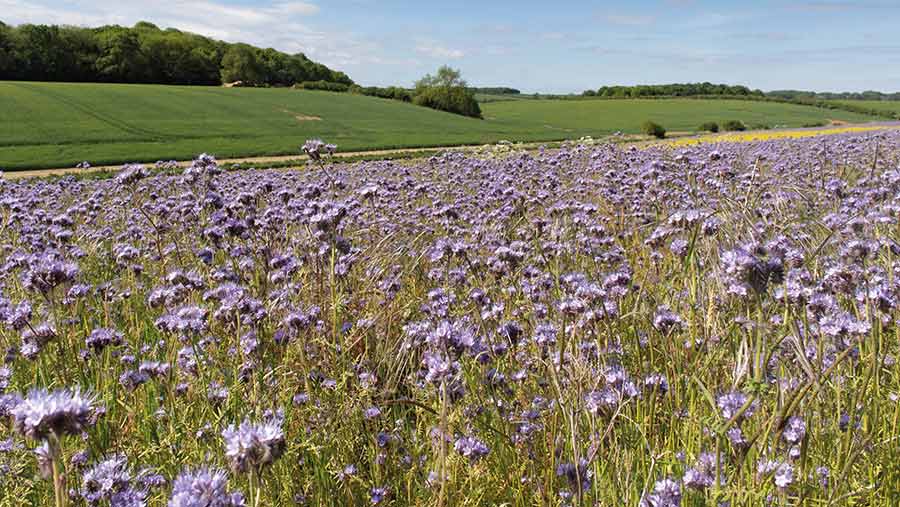ELM scheme here to stay, Defra tells green lobby groups
 © Tim Scrivener
© Tim Scrivener Green lobby groups have stepped up their attempts to secure more public money for nature recovery, despite repeated statements by Defra that its flagship Environmental Land Management (ELM) policy is not going to be scrapped.
For several weeks, groups such as the RSPB, the National Trust and the Wildlife Trusts have been claiming the government intends to do a U-turn on the upper tiers of ELM, namely Landscape Recovery and Local Nature Recovery.
See also: Food production and environment go hand in hand, says minister
They suggest the money may instead be destined for Common Agricultural Policy-style direct area payments for farmers.
In addition, they fear that a new government bill to scrap rolled-over EU laws will jeopardise existing protections for habitats and biodiversity, while the creation of 38 so-called “investment zones” could encourage infrastructure development on nature-sensitive areas.
Last weekend, the RSPB and the Woodland Trust organised a gathering of supporters at Bassetts Mead park in Defra secretary Ranil Jayawardena’s north-east Hampshire constituency to oppose what they call “an unprecedented attack on nature”.
RSPB executive director Emma Marsh said the government had failed to provide sufficient reassurances. “We are now readying ourselves to respond to potentially the biggest attack on nature in a generation,” she said.
Street protests have been mooted.
But Defra farming minister Mark Spencer has dismissed such claims as “incorrect speculation” and again spelled out that the scrapping of ELM is not an option.
It is the case that Defra has launched a review of its policies, and the Treasury has called for greater productivity, but this is expected to result in a “tweaking” of ELM, not an overhaul.
Recommendations
While the outcome of any review – expected in early November – remains uncertain, Defra will not be short of recommendations.
Food and farming alliance Sustain recently co-ordinated a letter to Mr Jayawardena, signed by 25 conservation and green farm groups, setting out their key demands.
In particular they called for Defra to roll out all three ELM schemes “as quickly as possible”, with increased ambition and budget.
They also propose that “government considers emergency funds for farmers in response to specific issues”.
In contrast, the Tenant Farmers Association has called for a swifter roll out of the Sustainable Farming Incentive (SFI), but with more money taken from the Landscape Recovery part of ELM, which should instead rely on private funding.
It adds that the Local Nature Recovery element of ELM should simply be an adaptation of Countryside Stewardship and Higher Level Stewardship “rather than attempting to create a new scheme just for the sake of doing so”.
Not ‘anti-environment’
Meanwhile, the NFU has hit back at suggestions from some environmental lobbyists that it is somehow anti-environment.
The claims had been made in response to NFU requests to delay ongoing cuts to the Basic Payment Scheme and allocate 65% of the ELM budget to the SFI, rather than one-third, as suggested by Defra.
Speaking at this week’s council meeting in Stoneleigh, NFU president Minette Batters insisted food and the environment will always co-exist as the union’s top priority.
